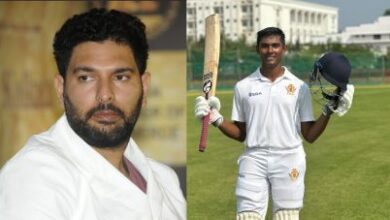The Language of Equality in Sports
Before, saying “batter” was associated with being a rustic person. “Batsman” was the response from those who knew both English and cricket.
“Batter” is a term that is casually used in several cultures, including Australia. But even then, it was seen as improper. The Australian cricketer Lisa Sthalekar, who was born in Pune, once used “batter” on broadcast. A coworker immediately informed her that “batter is for fish”.
The guidelines have now changed.
Saying “batsman” now days is considered misogynistic and out of date. Subconsciously, sexism starts with the fundamentals, like language. Why should a person batting be considered to be a man in a game that is played by both men and women?
The Marylebone Cricket Club (MCC) changed “batsman” to “batters” in its “Laws of Cricket” in 2021 as a result. It had a slangy, baseball-like tone. However, it was based on logic and was gender neutral.
And as a result, athletes supported it.
Indian badminton star Ashwini Ponappa says, “You’ve got to adapt to the times and the changes around us.” “The term ‘batter’ does represent a batter and is not intended to be gender-specific.”
“It’s about young girls feeling like we’re talking to them or discussing something they can do,” Sthalekar added. “Batsman” may cause them to become indifferent and think, “Well, they’re not talking about us.”
Additionally, the words “bowler,” “fielder,” “wicketkeeper,” and “non-striker” are all gender neutral. Only a handful stuck out, seeming stuffy and outdated and completely exclusive, such as “batsman,” “nightwatchman,” and “twelfth man.”
“I don’t want any girl in the world to feel like cricket isn’t for her because we’re using language that isn’t relatable to her,” said Geoff Allardice, CEO of the International Cricket Council. We must not undervalue the impact of words.
Before then, the phrase “Man of the Match” had also been banned by cricket organizations. ‘Player of the Match’ took its place.
Ashwini, a two-time gold medalist at the Commonwealth Games, is passionate about women’s concerns but does not perceive a devil where none exists. The Red Bull-sponsored athlete said she is content with the state of badminton in her own sport.
“Men and women get equal pay in badminton. And the men’s and women’s events are accorded equal weight,” she adds. Additionally, the language is neutral. Players, neither racquetmen or racquetwomen, are just players.
Even if a sport’s lexicon isn’t inherently biased, the way a term is used might nonetheless be sexist. For instance, some players and pundits object to the term “girls” being used to refer to teams of mature women. It is seen as blatant sexism and a manifestation of a subliminal propensity to minimize women’s sports and female athletes.
Janet Fink, an Associate Dean at the University of Massachusetts and a specialist in women’s sports marketing, said on CNN in 2021 that it was difficult to comprehend how “you could call someone who is a world-renowned athlete a girl” in that year.
Fink said that it would be funny to imagine a pundit referring to (a male athlete as) a boy. She believed that such rhetoric affects how people see female athletes.
Other idioms that proponents of gender equality would want to see changed include “sportsmanship” and the football word “man on,” which is used to alert a teammate that an opponent is upon him.
Snehal Pradhan, a former cricketer who is now a blogger and pundit, has often discussed gender problems in cricket. The “batter is for fish” statement was also directed at her. She persevered however. Though not yet in men’s bouts, there was a time when “batter” was accepted for women’s matches. A phrase that was intended to be gender-neutral had the opposite effect and became associated with women’s cricket. This was mentioned by Pradhan in one of her articles.
Finally, she was relieved when “batter” was introduced for men’s cricket. Pradhan notes that further work is necessary.
“We have larger fish to fry, pardon the pun. It is only cosmetic to modify cricket’s lingo without also altering the game’s actual circumstances, according to Pradhan in the Hindustan Times.
Similar sentiments were voiced to Republic World by Dr. Savita Aggarwal, Associate Professor at Delhi University’s Institute of Home Economics and a veteran teacher of gender and communication for more than three decades.
The ICC’s move to change the term “batsman” to “batter” for official use is a positive development, according to Dr. Aggarwal. “Using gender-neutral language, however, is not a magic wand; people’s attitudes toward women must change. Women must be accepted and acknowledged in significant roles and in positions of power in order to make progress toward ending gender inequality.”







